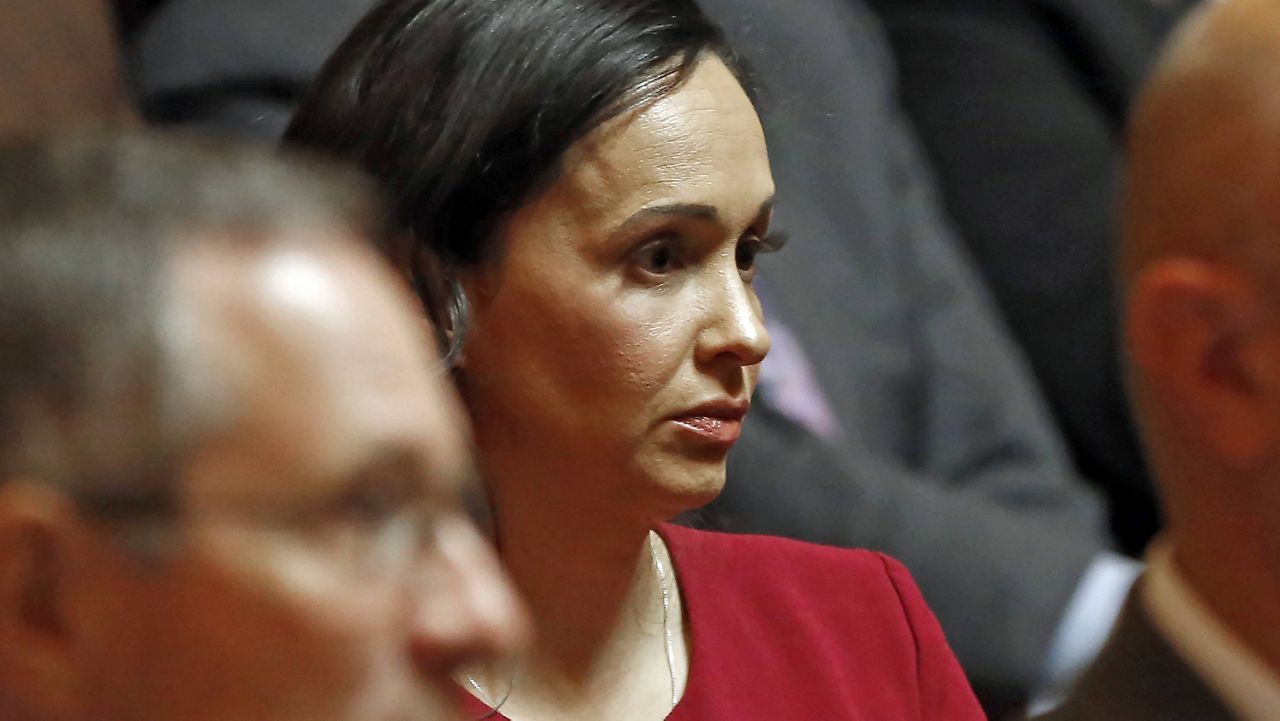SACRAMENTO, Calif. (AP) — The California Republican Party cleared the way Saturday to potentially endorse a candidate among the 24 Republicans seeking the governorship in the upcoming recall election.
The endorsement vote will take place virtually Aug. 7 and does not guarantee a candidate will win the nod, which would come with campaign cash and other party resources in the final weeks of the race. The party's executive committee approved the process Saturday, despite objections from some delegates and candidates who argued it will divide the party and distract from the main goal of convincing enough voters to recall Democratic Gov. Gavin Newsom.
What You Need To Know
- The list of 46 candidates running to replace Gov. Newsom includes 24 Republicans
- The party's delegates will gather virtually Aug. 7 to determine whether to back a candidate, which would direct the party's money and resources that person's way
- A candidate needs support from 60% of delegates to win the endorsement, a high threshold to cross
- The endorsement process has been controversial, with some Republicans arguing it distracts from the main goal of convincing enough voters to remove Newsom
Ballots for the Sept. 14 election will start hitting mailboxes in mid-August. Voters will be asked two questions: Should Newsom be recalled and who should replace him? If half of voters want to recall him, the replacement candidate with the most votes becomes governor.
Forty-six candidates are running to replace him. Top Republicans including former San Diego Mayor Kevin Faulconer, businessman John Cox, nationally syndicated radio host Larry Elder, celebrity Caitlyn Jenner, former Congressman Doug Ose and Assemblyman Kevin Kiley.
To win the party's endorsement, a candidate would need support from at least 60% of the party's delegates, a high threshold that will be difficult to cross. Delegates don't have to choose a candidate; they can vote “no endorsement."
Party chairwoman Jessica Millan Patterson had earlier advocated for an endorsement but now says she wants the delegates to decide.
“I have consistently called for a fair, transparent process that would allow our party to go into the recall election united and strong with a decision to endorse a candidate or a decision not to endorse,” Patterson said in a statement after the vote.
The dispute over whether the party should endorse underscores Republicans' challenges heading into the election. Though they successfully built on pandemic frustrations to get the recall on the ballot, they have an uphill climb to oust Newsom. Democrats in the state outnumber Republicans almost 2-to-1, and Newsom has far more campaign money to spend.
Cox, who ran against Newsom in the 2018 general election and lost badly, decried the endorsement process and said he won't participate. He says the party is trying to rig the vote in favor of Faulconer, who has a more moderate record than Cox and the other prominent Republicans.
Faulconer's campaign said this week an endorsement process would be divisive after earlier arguing for one. But his campaign manager Stephen Puetz said Faulconer would still seek the party's nod if the process went forward



